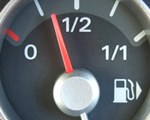 Go to main content
Go to main content
Archive Website of the UK government
Please note that this website has a UK government accesskeys system.
Main menu
Page menu
Environment and greener living

Greener living: a quick guide

This article can help you start being greener, with links to more detailed information if you want it. You can cut your carbon footprint, help look after nature and save money with simple changes. Try making your home more energy efficient, using greener driving tips and wasting less food.
Environmental problems: where can you start?
The biggest effects most people have on climate change come from:
- energy used at home
- travel
- the food they eat
Most other environmental problems, like pollution or loss of rare animals, are also a result of everyday demands for food, products and energy.
Find out what your carbon footprint is, and how to reduce it, using the link below to 'Calculate your carbon footprint'.
Greener home

Four in ten people in the UK say they want to do more to help the environment
Saving energy at home is one of the most important things you can do to fight climate change and can save you money.
Energy saving help
You could be eligible for money off insulation or other energy saving home improvements. Call the Energy Saving Trust's free helpline on 0800 512 012 to find out more or complete their online home energy check. Their advice could save you around £300 a year.
Turn down your heating
Turn your thermostat down one degree to cut your heating bills by up to 10 per cent and reduce carbon emissions.
Buy energy saving products
Find the most energy efficient electrical products by looking for the Energy Saving Trust Recommended label and European energy label (rating of A or higher). The European energy label also gives information to help you choose items that use less water.
Greener travel choices

A more fuel efficient car could save you three months’ worth of fuel a year
Personal travel causes around a quarter of all the damage individuals do to the environment and most of this is from cars.
Choose fuel saving cars
If you’re buying a car, use the fuel economy label to choose one that will use less fuel. The more fuel efficient your car, the less tax you pay.
Drive less
Use your car less for short trips. Walking, cycling, or taking the bus will help reduce local air pollution and carbon emissions. Walking and cycling can also help keep you fit.
Fly less and offset CO2 emissions
Think about how you could get what you need without flying. For example, try holidaying closer to home and travelling by rail or sea. If you have to fly, think about offsetting your CO2 emissions. This means paying money to projects that reduce CO2 emissions in other ways, like setting up renewable energy projects.
Greener food choices
Food counts for nearly a third of most people’s effect on climate change.
Waste less food
The average UK household spends £420 a year on food that could have been eaten but is thrown away. Wasting food wastes all the energy needed to make it. Visit the ‘Love Food, Hate Waste’ website for recipes and tips to help you waste less food and save money.
Buy climate friendly foods
The following tips can help you choose food with a lower carbon footprint:
- meat and dairy foods have a much bigger effect on climate change and the environment than most grains, pulses, fruit and vegetables
- buying fresh and unprocessed foods can mean fewer carbon emissions, because processing food and freezing or refrigerating it uses a lot of energy
- buying food grown outdoors in season can help reduce CO2 emissions, because it doesn’t need heated greenhouses
Buy wildlife friendly foods
Some food is made in ways that are more wildlife friendly, for example without using pesticides. Other food supports the countryside and local communities, for example by creating local jobs. Find these by looking for labels like LEAF, organic and the Marine Stewardship Council, or choosing retailers that are trying to stock greener food.
Recycle and waste less
Reusing and recycling instead of throwing items away will mean less waste and less energy needed to make new items.
Reuse and repair
Avoid waste in the first place, by reusing, upgrading and repairing. Try saving money by upgrading computers and hanging on to mobile phones, rather than replacing them. Avoid disposable items and pass things on when you’ve finished with them.
Recycle more
Nearly two thirds of all household rubbish can be recycled and most councils run doorstep recycling collections for paper, glass and plastics. Waste and recycling centres often accept many other things, from wood to textiles and TVs.
Get composting
Composting food waste can help reduce emissions that cause climate change. Many local councils offer reduced price compost bins and some collect kitchen and garden waste from your home.
Greener shopping
Here are some ways to help the environment when you shop.
Green labels
Use labels to choose items that cause less damage to the environment - for example, energy efficient fridges and cars, responsibly caught fish and peat-free compost.
Ask for greener choices
If you can’t find what you want, or need more information about greener choices, ask in shops. The more people ask, the more shops will think about stocking greener choices.
 Facebook
Facebook Twitter
Twitter StumbleUpon
StumbleUpon Delicious
Delicious Reddit
Reddit
